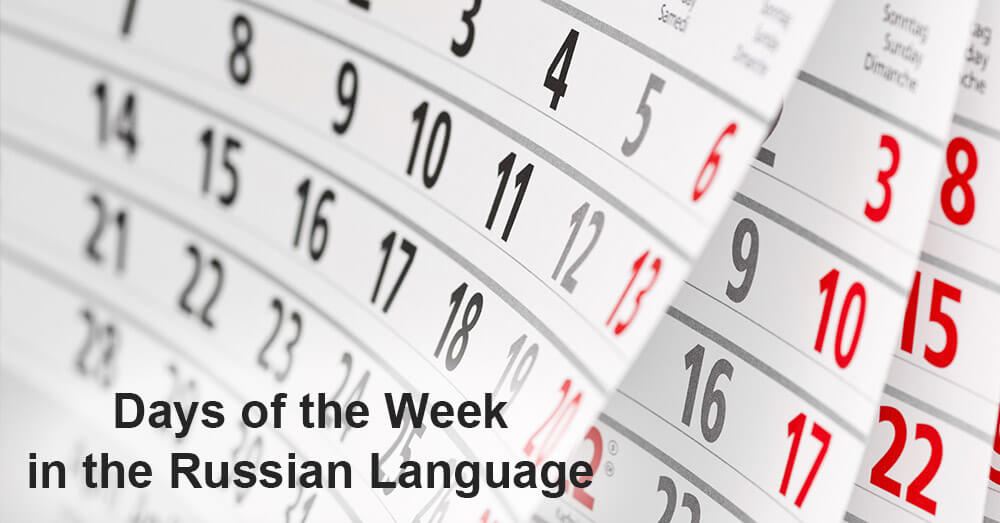Слово недели
Решать — решить (to solve; to decide)
(Смотреть на youku)
| Упражнение |
Что можно делать зимой? (winter activities)
(Смотреть на youku)
| Упражнение |
Улыбаться — улыбнуться; смеяться — засмеяться (to smile/ to laugh)
(Смотреть на youku)
Дарить — подарить (to give gifts)
(Смотреть на youku)
Вставать — встать / ложиться — лечь спать (to get up / to go to sleep)
(Смотреть на youku)
| Упражнение |
Праздновать — отпраздновать / отмечать — отметить / встречать — встретить (to celebrate)
(Смотреть на youku)
| Упражнение |
Включать — включить / выключать — выключить (to turn on/ to turn off)
(Смотреть на youku)
| Упражнение |
Открывать — открыть / закрывать — закрыть (to open/ to close)
(Смотреть на youku)
| Упражнение |
Жарить — пожарить и другие слова (how to talk about cooking, part 3)
(Смотреть на youku)
| Упражнение |
Варить — сварить и другие слова (how to talk about cooking, part 2)
Готовить — приготовить и другие слова (how to talk about cooking, part 1)
The Russian days of the week may seem quite scary.
After all, they sound completely different than the English ones.
Also, if you want to say something simple as ‘’See you on Wednesday”, the word for Wednesday: среда changes to среду.
Don’t despair though.
In this guide you’ll find all the words for the days of the week in Russian + examples how they change according to the function of the day in the sentence.
Ready? Поехали!
What are the days of the week in Russian?
Days of the week are completely different in English than in Russian.
That’s because Slavic languages have few words in common with English.
For example, in Dutch the word for monday is maandag. Almost the same, right?
In Russian, you’ll just have to learn each word by heart.
Here’s all the Russian days of the week in a table:
| Russian Word | Translation | Example |
| понедельник | Monday | Понедельник первый день недели – Monday is the first day of the week |
| вторник | Tuesday | Вторник занятой день на работе – Tuesday is a busy day at work |
| среда |
Wednesday | Среда – середина недели – Wednesday is the middle of the week. |
| четверг | Thursday | четверг – день, когда я с нетерпением жду выходных – Thursday is the day I look forward to the weekend |
| пятница | Friday | Пятница означает что почти выходные – Friday means it’s almost weekend |
| суббота | Saturday | суббота первый день выходных – Saturday is the first day of the weekend |
| воскресенье | Sunday | воскресенье второй день выходных – Sunday is the second day of the weekend |
Which prepositions to use for the Russian days of the week?
Just knowing the words for the days of the week in Russian is not going to be enough to use them correctly in your speech.
No.
You cannot just say:
понедельник я иду на работу – monday I go to work
You also need to know the correct prepositions to use them.
The correct form here would be:
в понедельник я иду на работу.
There are different ways you can say the Russian days of the week.
- On monday I go to work.
- Every monday I go to work.
- From monday to friday I go to work.
- Until monday I have vacations.
And each of those prepositions uses a different case.
By the way, if you want to learn Russian quickly, I’ve got a course that teaches you how to use strategic habit-building to make learning Russian fun, easy, and automatic. It’s not free, but it’s helpful if you’re currently struggling with learning Russian. You can find more information here.
On Wednesday
If you want to say that you do something on a specific day, you use the Russian prepositions в. It literally means ‘to’.
But in Russian you use it to say ‘on + day of the week’.
Another thing is that you use the accusative case here.
Since days of the week are inanimate, only the feminine days change their einding.
Also, you can sometimes use the preposition на, if you mean that a specific event or situation is planned for a specific day.
On Wednesday I go to the cinema with a friend – В среду хожу в кино с другом
встреча запланирована на пятницу – the meeting is planned for Friday
Here is how you apply this to each day of the week:
| Russian Word | Translation | Example |
| в / на понедельник | On / for Monday | в понедельник я хожу в спортзал – on Monday I go to gym |
| во / на вторник | On / for Tuesday | Во вторник мой дедушка пошел в больницу – On Tuesday my granddad went to the hospital |
| в / на среду | On / for Wednesday | Вы видели своего менеджера в среду утром? – did you see your manager Wednesday morning? |
| в / на четверг | On / for Thursday | В четверг у меня выходной! – On Thursday I have a day off! |
| в / на пятницу | On / for Friday | мы запланировали вечеринку на пятницу – we planned a party for Friday |
| в / на субботу | On / for Saturday | какие у тебя планы на субботу вечером? – what are your plans for Saturday night? |
| во / на воскресенье | On / for Sunday | В воскресенье идет футбольный матч – On Sunday there is a soccer match |
One interesting thing here is also with Tuesday. As you see, the preposition в changes to во. This is a general rule if the noun after starts with a в as well. This may seem difficult, but try speaking it out loud.
You find that you pronounce the о whether you want to or not 🙂
From Monday until Friday
When you want to say FROM a day until a day, you use the 2 prepositions:
- с
- до
Both require the genitive case.
So “I work from Monday until Friday” in Russian would be:
я работаю с понедельника до пятницы
Here’s an overview of all the days of the week.
| Russian Word | Translation | Example |
| с / до понедельника | from / until Monday | Неделя начинается с понедельника – The week starts from Monday |
| с / до вторника | from / until Tuesday | Моя подписка действительна до вторника – My subscription is valid till Tuesday |
| со / до среды | from / until Wednesday | Новое правило применяется со следующей среды – The new rule applies from next Wednesday |
| с / до четверга | from / until Thursday | Я почувствовал себя плохо с четверга утром – I felt ill from Thursday morning |
| с / до пятницы | from / until Friday | у вас есть до пятницы, чтобы закончить этот проект – you have till Friday to finish this project. |
| с / до субботы | from / until Saturday | Я всегда заканчиваю домашнее задание до субботы – I always finish my homework before Saturday |
| с / до воскресенья | from / until Sunday | Начиная с воскресенья, я больше не буду пить алкоголь – Starting from Sunday, I will no longer drink alcohol |
Until, including Tuesday
If you want to emphasize that the until day really includes that day as well, you can use the prepositions по.
По requires the accusative case.
So it should be more correct to actually say:
я работаю с понедельника по пятницу
If you mean that you work from Monday to Friday (emphasize on including Friday).
Here’s an overview of how all the Russian days of the week change according to the dative case.
| Russian Word | Translation |
| по понедельник | until Monday |
| по вторник | until Tuesday |
| по среду | until Wednesday |
| по четверг | until Thursday |
| по пятницу | until Friday |
| по субботу | until Saturday |
| по воскресенье | until Sunday |
Every friday
If you want to say that you do something specific on EVERY Thursday, you still use the preposition по.
The only difference here is that the day should be in the plural form.
On Thursday I go to Russian classes – По четвергам хожу на уроки русского языка
Here’s an overview of the days of the week in Russian with по + dative plural.
| Russian Word | Translation | Example |
| по понедельникам | on Mondays | по понедельникам хожу на футбольную тренировку – on Mondays I go to soccer practice |
| по вторникам | on Tuesdays | По вторникам я занят на работе – On Tuesdays I am busy at work |
| по средам | on Wednesdays | по средам я утромвсегда покупаю чай латте – On Wednesday morning I always buy a chai latte |
| по четвергам | on Thursdays | По четвергам вечером пью пиво с друзьями – On Thursday nights I drink beer with friends |
| по пятницам | on Fridays | По пятницам мы всегда идем на вечеринку с коллегами – On Fridays we always go party with colleagues |
| по субботам | on Saturdays | По субботам у меня всегда похмелье – On Saturdays I always have a hangover |
| по воскресеньям | on Sundays | Строю планы на неделю по воскресеньям – I make plans for the week on Sundays |
Abbreviations and other helpful vocabulary
Above you can find everything you need to know about the days of the week in Russian. However, I’d like to take the opportunity here to give some additional information that will come in handy.
First, let’s take a look at all the abbreviations for the days. It’s probably obvious for most, but it doesn’t harm to see them correctly once as well.
- Пн – Monday
- Вт – Tuesday
- Ср – Wednesday
- Чт – Thursday
- Пт – Friday
- Сб – Saturday
- Вс – Sunday
Apart from the days of the week, here’s is also a list of useful vocabulary when talking about time expressions.
| Russian word | English | Example |
| выходной день | day off | у меня выходной день – I have a day off |
| рабочий день | working day | Понедельник рабочий день – Monday is a working day |
| завтра | tomorrow | Завтра будет хороший день – Tomorrow will be a nice day |
| Послезавтра | day after tomorrow | Погода будет отличной послезавтра – The weather will be amazing the day after tomorrow |
| сегодня | today | Я работаю допоздна сегодня – I’m working late today |
| вчера | yesterday | Вчера я был дома в 21.00 – Yesterday I was home at 21.00 |
| Позавчера | day before yesterday | позавчера тоже был долгий день – the day before yesterday was a long day too |
| на этой неделе | this week | на этой неделе у меня много классных планов – this week I have a lot of cool plans |
| на следующей неделе | next week | на следующей неделе я собираюсь в отпуск – next week I’m going on vacations |
| на прошлой неделе | last week | на прошлой неделе было много сумасшедших клиентов – last week had a lot of crazy customers |
| Через неделю | after a week/a week from | через неделю мы едем к морю – in a week we are traveling to the sea |
| день | day | сумасшедший день, не так ли?’ – crazy day, isn’t it? |
| Через день | every other day | через день я хожу в спортзал – every other day I go to the gym |
| неделя | week | это занятая неделя – it’s a busy week |
| месяц | month | Январь холодный месяц – January is a cold month |
| Через месяц | in a month’s time | через месяц мы получаем нашу первую зарплату – in a month we get our first salary |
| год | year | 2020 год странный – 2020 is a weird year |
Had any trouble with the days of the week? Let me know in the comments.
До понедельника!
What should you do next?
Learning Russian does NOT need to be difficult. All you need is a solid plan that helps you improve the following things on a consistent basis:
- Vocabulary
- Grammar
- Listening
- Speaking
That’s ALL you need. If you can do this for a couple of weeks, you’ll already be making great progress in your Russian skills.
And the best part? If you improve a little bit every day, soon these practices will become daily habits.
And then you will start making progress on autopilot.
This means that learning Russian is now a part of your daily routine. So you won’t even need discipline anymore to get yourself to practice.
If you like how this sounds, check out my course the Russian Conversational Blueprint.
It teaches you how to use strategic habit-building to make learning Russian fun, easy, and automatic, so that you can finally start to enjoy conversations with native Russian speakers.
The course is not free, but if you’re serious about learning Russian, it will be incredibly helpful.
Wednesday, November 14, 2012
Russian names for weekdays and their origin
In
this post you’ll learn Russian words for days of the week. It might
be easier to memorize them when you know about their origin.
понедельник
— Monday
comes
from неделя — week
вторник
— Tuesday
второй
— second
среда
— Wednesday
середина
— middle
четверг
— Thursday
четвёртый
— fourth
пятница
— Friday
пятый
— fifth
суббота
— Saturday
воскресенье
— Sunday
воскресенье/воскресение/воскрешение
– resurrection
Via RussianPlus.
Posted by
Ekaterina Trayt
at
02:07
2 comments:
-
that is so easy, I never was thinking before about the meaning… I knew them just cause we used it in family!
Love your posts!!!
LiubaReplyDelete
Replies
-
Thanks!
When I learn new words, I often try to see if they are related to any of the words I already know.Delete
-

By
Last updated:
March 9, 2023
I was particularly amused recently while watching “Downton Abbey,” when Maggie Smith’s character asked, “What is a weekend?”
Sadly, not everyone knows what a уикенд (weekend) is.
In fact, in late 1929, Stalin outlawed weekends in the Советский союз (Soviet Union). Up until that time, Sundays were a day of rest. But in late September 1929, Stalin instituted the seven-day, continuous working week so that the Soviet factories and labor force would never sit idle. Fortunately, after 11 years, the program ended in June 1940.
Regardless of whether you prefer the weekend or dream of an early start to the workweek on Monday mornings, you should familiarize yourself with all the Russian days of the week.
You’ll also learn why the days were given their specific names, vital related vocabulary and much more!
Contents
- The Russian Days of the Week
- Prepositions Used with the Days of the Week
- Additional Russian Day Vocabulary
Download:
This blog post is available as a convenient and portable PDF that you
can take anywhere.
Click here to get a copy. (Download)
The Russian Days of the Week
As expected, there are seven дни недели (days of the week) in Russian.
The Russian week starts on Monday, not Sunday, as in some places across the globe. Keep this fact in mind, because when looking at a Russian calendar, you’ll notice Monday is first.
In the 9th-12th centuries, when Russia was called Русь, седмица was the word for week due to the stem семь (seven). Now, the word for week is неделя.
As mentioned in the intro, you can use the word уикенд for “weekend.” However, a more standard way to say “weekend” is выходные (note that this word is actually plural).
Before we get started on the days of the week, it’s essential to note that they’re not capitalized in Russian unless, of course, the day is at the start of a sentence.
понедельник (Monday)
This word is old enough that when it came into existence, неделя still meant “Sunday,” not “week” as it does now in Russian. In fact, in all other Slavic languages some form of неделя means Sunday, since it literally means “not doing,” as in not working.
Abbreviations are often used on a календарь (calendar), so the shortened form of Monday is Пн.
вторник (Tuesday)
Does the word второй (second) look familiar? Most learners study their cardinal numbers first, but if you’re familiar with ordinal numbers, you probably recognize второй. Since Tuesday is the second day of the week, the word вторник is logical. The abbreviation for Tuesday is Вт.
среда (Wednesday)
The word среда is related to the word средний , which means “middle.” Wednesday is in the middle of the workweek, hence the name. Wednesday’s abbreviation is Ср.
четверг (Thursday)
Have you started to notice a pattern? Go back to your ordinal numbers again and think about the word for “fourth.” If you came up with четвёртый, you’re correct! Naturally, the abbreviation for Thursday is Чт.
пятница (Friday)
That’s right: пять equals “five,” and Friday is the fifth day. The abbreviation for Friday is Пт.
суббота (Saturday)
While most weekday names are easy to remember based on numbers, the weekend names are a little different. The word for Saturday, суббота, comes from ancient times when Saturday was the шаббат (Sabbath) and it was a day of покой (rest). Saturday’s abbreviation is Сб.
воскресенье (Sunday)
For воскресенье, the dictionaries seem to be in agreement that it’s related to a now-extinct root that meant “to get well” or “to recover.”
This day of the week sounds very similar to the word воскресение, which means “to rise from the dead,” or “resurrection.”
The USSR was considered one of the world’s most atheist states, but despite this reputation, Sunday continued to be called воскресенье. Even with the shunning of religion during the Soviet Era, more than 70% of Russians practice Russian Orthodoxy today. As you’d expect, Sunday’s abbreviation is Вс.
Note: Notice the slight spelling difference between воскресенье and воскресение? This is just to differentiate the day of the week from “resurrection.”
To recap the days of the week, check out this video by Antonia Romaker.
Before we move on to discussing how to use the days of the week grammatically, it’s worth mentioning that Russian days of the week have a gender and are declinable according to case.
There are several prepositions which are used with the days of the week to indicate when something is due to take place. Let’s take a closer look at them.
Prepositions Used with the Days of the Week
On x day: В(о) + day in the accusative case
As mentioned above, в(о) + the day in the accusative case is used to say “on x day.”
All of the days of the week use в except for Tuesday, which is written as:
во вторник (on Tuesday).
This is because it’s too difficult to say в + a word starting with в or ф, followed by another consonant. In this case, the о is added to в to make it easier to pronounce properly. You can read more about this on Russian for Everyone’s website.
There’s a colloquial way to say “on the weekend” that’s a little different from talking about individual days because it uses the prepositional case with the preposition на instead of в:
на выходных (on the weekend)
Note that if you want to use the standard way of saying “on the weekend,” you’d say:
в выходные (on the weekend)
This works exactly like with individual days, that is, в + accusative case.
Perhaps you want to convey to someone that you have a standing appointment, and thus each Monday, you do something. You could say:
По понедельникам у меня уроки русского с Катей. (On Mondays, I have Russian lessons with Katya.)
On x days: По + day in the dative plural
Keep in mind that for each day, the ending is ам, with the exception of the word “Sundays,” which has the ending ям. It’s written as:
по воскресеньям (on Sundays).
Also, the word “weekends” is already plural, so the ending is ым, which looks like:
по выходным (on weekends)
Another phrase that’s frequently used when talking about days of the week is the expression “from x to x.”
Со вторника по пятницу я буду в Минске по работе. (From Tuesday to Friday, I will be in Minsk for work.)
From x day until x day: С(о) + day in the genitive case + до + day in the genitive case
This one is pretty straightforward. One example of using this formula is as follows:
со вторника до среды (from Tuesday until Wednesday)
Again, similarly to how в becomes во before вторник, the с becomes со before вторник in this case. But unlike with в(о), the same rotation applies to среда. This means you say:
в среду (on Wednesday) but со среды (from Wednesday)
Additional Russian Day Vocabulary
While it’s necessary to master the seven days of the week, you’ll need some additional vocabulary in order to speak about the days in relation to one another.
Here are some of the basics that’ll help you discuss the chronological order of days, along with some example sentences.
день (day)
Сегодня красивый день на улице. (Today is a beautiful day outside.)
позавчера (the day before yesterday)
Позавчера я написал новое сообщение в блоге. (The day before yesterday, I wrote a new blog post.)
вчера (yesterday)
Вчера я говорила с моим братом по Скайпу. (Yesterday, I spoke with my brother on Skype.)
сегодня (today)
Сегодня пятница. (Today is Friday.)
завтра (tomorrow)
У нас завтра контрольная в школе. (We have a test in school tomorrow).
послезавтра (the day after tomorrow)
Экзамен был отложен. Теперь экзамен послезавтра. (The exam was postponed. Now, the exam is the day after tomorrow.)
рабочий день (workday)
Я работаю в ресторане, поэтому суббота для меня рабочий день. (I work in a restaurant, so Saturday is a workday for me.)
выходной день (day off)
Ресторан закрыт в понедельник, поэтому у меня выходной день. (The restaurant is closed on Monday, so I have the day off.)
Similar to discussing days in relation to one another, it’s helpful to be able to discuss the chronology of weeks as well. Below are the most important phrases.
на прошлой неделе (last week)
На прошлой неделе я купила новый дом. (Last week, I bought a new home.)
на этой неделе (this week)
На этой неделе у меня встреча в банке. (This week, I have a meeting at the bank.)
на следующей неделе (next week)
На следующей неделе я переезжаю! (Next week, I’m moving!)
In addition to the above phrases and day vocabulary, there are a couple of questions you should know when talking about the days of the week. They’re as follows:
Какой сегодня день? (What day is today?)
This one is quite simple and self-explanatory.
В какой день? (On which day?)
You might use this phrase if you’re speaking to someone about organizing plans. In response to “В какой день?” you’d answer with the preposition в(о) + the day in the accusative case. For example:
Мой день рождения в среду. (My birthday is on Wednesday.)
You can check out this video by Ru-Land Club to hear some of the above vocabulary, as well as phrases that use the Russian days of the week.
Now that you’re familiar with the days of the week, perhaps you think it’s best to rush out and start making appointments with all your new Russian friends. Maybe. But probably not.
Russians aren’t known for being tied to a calendar or their watches to the extent that many English speakers are. Time can be a bit more of relaxed concept in Russia than it is in certain other countries. Plans can change as the agreed-upon date approaches, so it’s always best to call and confirm a day or two in advance.
However, many people do still make plans far in advance (such as vacations and business trips), and being more than 15 minutes late to a meeting is considered rude. Of course, Russian trains also tend to run according to schedule (98% of the time), so if nothing else, it’s a safe bet to pencil in your travel times.
And in any case, knowing the Russian days of the week is essential, so this is one task you can cross off your calendar!
Download:
This blog post is available as a convenient and portable PDF that you
can take anywhere.
Click here to get a copy. (Download)
Hello, my dear student!
Today I would like to continue our topic on days of the week in Russian. In the last article we talked about all days: weekdays as well as weekend. Now let’s analyze, why do they have such names?
Воскресенье [Vaskrisen’e] – sunday
In ancient times in Rus’ (Русь – an ancient name of Russia) a week was called «седмица» [sidmitsa] which derives from the word «семь» [sem’] (seven). But the name «неделя» [nidelya] (a week) was only referred to one day – modern Воскресенье (Sunday) because on this day it was accepted to do nothing (ничего НЕ ДЕЛать [nichivo NI DELat’]) — that’s why the word «НЕДЕЛя» (NIDELya] was derived from this verb. Only after Rus’ had converted to Christianity and people had begun celebrating Easter, it was decided to call this day «воскресенье» [vaskrisen’e] (Sunday) which literally means «to create, call into existence».
Понедельник [Panidel’nik] — Monday
Вторник [Ftornik] – Tuesday
As we begun counting from Sunday, the first day after the day of «doing nothing» was modern «понедельник» [panidel’nik] (Monday). The second day after воскресенья [vaskrisen’ya] (Sunday, «ничего не делания» [nichevo ni delan’ya] – «doing nothing») was «вторник» [ftornik] (Tuesday).This word derives from the Old Slavic word and means «второй» [ftoroy] (the second), that is why it is called – вторник.
Среда [Srida] – Wednesday
Среда (Wednesday) has such name because it is the day in the middle of a weekday, and the Old Slavic word is «середина» [siridina] (middle) or «сердце» [sertse] (heart), so was created the name — среда.
Четверг [Chitverg] — Thursday
Пятница [Pyatnitsa] – Friday
Четверг и пятница (Thursday and Friday) are considered to be the forth and the fifth days after «ничего не делания» (Sunday), that’s why it derives from the words «четыре» [chityri] (four) and «пять» [p’at’] (five). You can see the same root in these words and names.
Суббота [Subota] – Saturday
The name «суббота» is not logically created, it belongs to ancient times and resembles the name of this day in most other languages. «Суббота» (Saturday) derives from the word «шаббат» (sabbath) that means «покой» [pakoj] (rest) in Hebrew.
One can get to know such interesting things when they learn days of the week in Russian. I hope, this knowledge will help you to memorize all these names better, and when somebody mentions them, you will quickly associate them with proper days of the week.
Today we are going to tell you about the names of the days of the week in the Russian language and to analyze their origin. Let’s have a closer look at the days of the week:
Similar to other world languages, Russian has 7 days of the week, 2 of which are called “Выходными” [Vykhadnye] Weekend, but the rest of the days when people work, study, or are busy doing some other things are called “Будние дни” [Budnie dni] weekdays or “Будни” [Budni]. Every work day [rah-BOH-cheey dyehn’] has its own original and interesting name which appeared in the past and still exists nowadays.
Sunday
Воскресенье [vuhs-kree-SYEHN’-yeh] Sunday
In ancient times, in Russia the week used to have a completely different name – “Седмица” [sedmitsa], which is originated from the word “семь” [sem’] seven, but only one day of the week -воскресенье (Sunday) was called “неделя” [nee-DYEH-lyah] week , as it was a custom to do nothing (НЕ ДЕЛать )on this day. Therefore, the word “неделя” originated from this verb. After Russia had become a Christian state, and Russians started to celebrate Easter, this day was called “воскресенье” which means “raising” , “resurrection”.
Monday
Понедельник [puh-nee-DYEHL’-neek] Monday
The days were counted from Sunday, therefore “понедельник” [puh-nee-DYEHL’-neek]Monday was the first day after “ничего не делать”.
Tuesday
Вторник [FTOHR-neek] Tuesday
The second day after Sunday was “вторник” [FTOHR-neek] Tuesday. The word originated from the Old-Slavic word which means “second”.
Wednesday
Среда [sree-DAH] Wednesday
Wednesday got its name because it is in the “в середине” [siridina] middle of the week or from the word “сердце”[sertse] heart.
Thursday
Четверг [cheet-VYEHRK] Thursday
Thursday is the fourth day after Sunday and it is originated from the word “четыре” [chityri] four.
Friday
Пятница [PYAHT-nee-tsuh] Friday
Friday is the fifth day after Sunday and it is originated from the word “пять” [pyat’] five.
Saturday
Суббота [soo-BOH-tuh] Saturday
The name “субботa” originated from the Jewish word “sabbath” which means “покой” [pakoj] rest.
What prepositions do Russians use with the names of the days of the week?
Russians usually use the preposition “В”/”ON” when they want to say that they are going to do something or to go somewhere on this day. For example: Я пойду в кино в воскресенье, а на работу – в понедельник. [Ya pajdu f kino f vaskrisen’e, a na rabotu – v panidel’nik] I will go to the cinema on Sunday, but to work – on Monday.
It should be mentioned that all days of the week are used with the preposition “В”, except Tuesday. This day of the week is used with the preposition “Во”, for example: Во вторник будет жарко [Fa ftornik budet zharka] It is going to be hot on Tuesday.
Prepositions “к” or “ко” (for Tuesday) are also used with the days of the week.
For example:
Я выполню эту работу ко вторнику [Ya vypalnyu ehtu rabotu ka ftorniku] I will do this work by Tuesday.
К субботе я приготовлю кексы [K subote ya prigatovlyu kyeksi] I am going to make cupcakes by Saturday.
If you need to ask what day of the week it is today, you can use the phrase:
Какой сегодня день? [kah-KOI see-VOHD-nyah dyehn’].
Here are some more words and phrases that might be useful when you are going to speak about your schedule, calendar events, yesterday, today, or tomorrow:
- Завтра [ZAHF-trah] tomorrow
- Сегодня [see-VOHD-nyuh] today
- Вчера [fcheeh-RAH] yesterday
- На этой неделе [nah EH-tuy nee-DYEHL-yee] this week
- На следующей неделе [nah SLYED-oo-yoo-shchee nee-DYEHL-yeh] next week
- На прошлой неделе [nah PROSH-luy nee-DYEHL-yee] last week
We hope you have found this article interesting and now you know the names and origin of the days of the week in the Russian language. Russian language is fun to learn!







